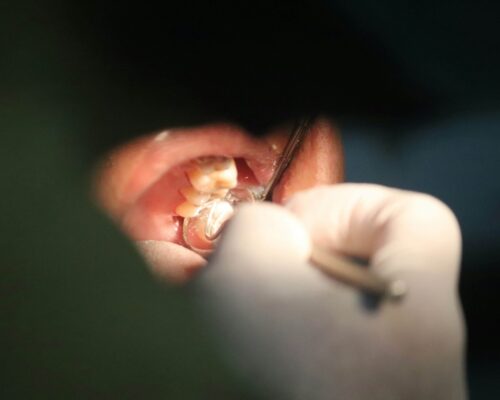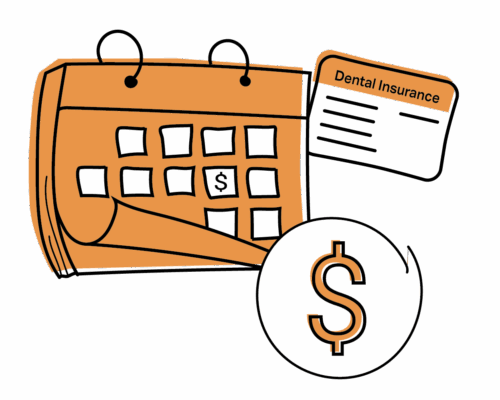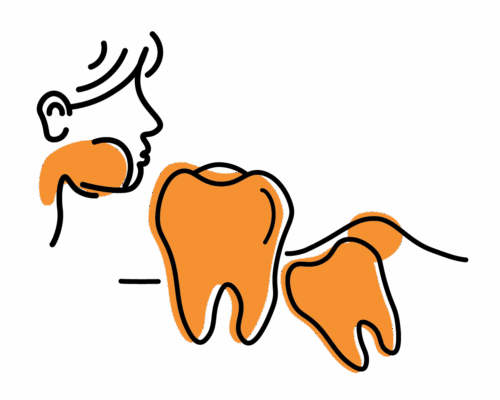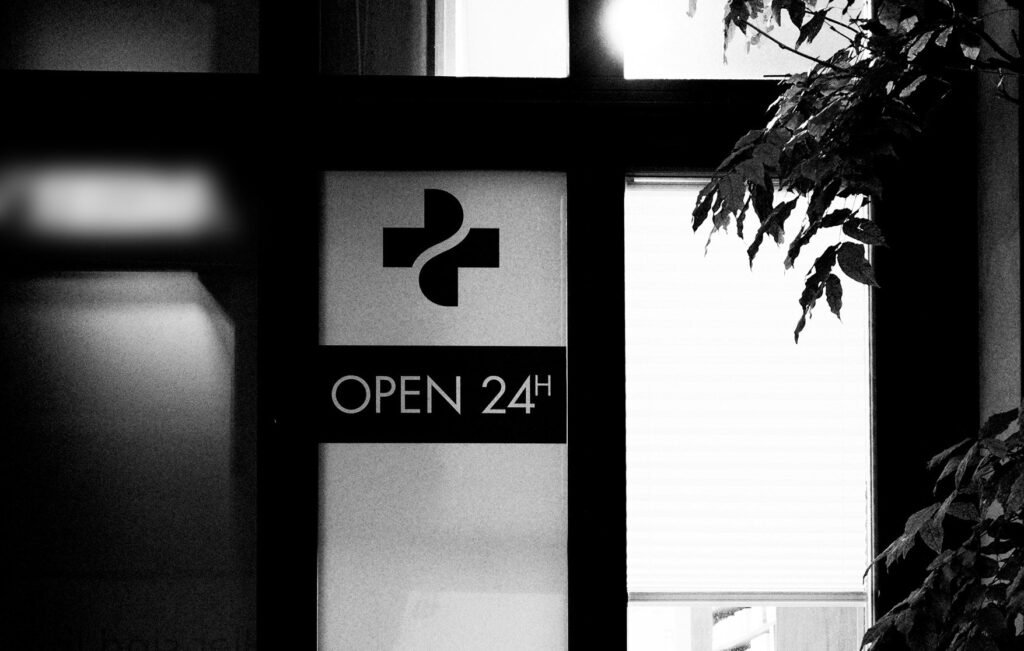Emergency Wisdom Tooth Pain Relief:
An In-Depth Guide
Wisdom tooth pain can hit hard: throbbing in the jaw, swelling in the gums, and even keeping you up at night. You’re not alone, and relief is possible. This guide explains how to stop wisdom tooth pain at home, how to recognize when it’s an emergency, and what treatment looks like when you see a dentist.

When Wisdom Tooth Pain May Require Care
Impaction
A wisdom tooth gets stuck in the bone or gum, pressing against nearby teeth.
Pericoronitis
Infection around a partly emerging tooth, causing swelling and pain.
Cyst Formation
A fluid-filled sac develops near the tooth, harming bone and nerves.
Severe Decay
Hard-to-reach wisdom teeth develop deep, painful cavities.
Crowding
Extra molars can push nearby teeth, causing shifting and misalignment.
Nerve Damage
Impacted teeth pressing on nerves create a risk of ongoing pain.
What to Expect During a Dental Visit for Wisdom Tooth Pain
Evaluation
Dentist examines the area, reviews symptoms, and may take X-rays.

Diagnosis
They explain whether it’s impaction, infection, or another issue.

Treatment
Options may include antibiotics, tooth removal, and pain control.

Why You Shouldn’t Wait
Wisdom tooth pain can be treated, and relief often comes quickly once you see a dentist. With sedation or local anesthesia, treatment is easier and more comfortable than many people expect, and most patients feel better almost immediately after an extraction or infection control. Acting sooner rather than later protects your long-term health, preventing issues like swelling, cysts, or bone damage. If your pain is paired with fever, swelling, or trouble opening your mouth, call a dentist right away. Quick action brings comfort now and avoids bigger complications later.
Costs, Insurance, and Payment Options
Wisdom tooth pain doesn’t always wait for payday. Most dental offices accept insurance, but coverage varies depending on whether the visit is considered emergency care. If you’re uninsured, you still have options: many clinics offer cash discounts, financing, or membership programs that help spread out costs. Extractions and infection treatment are common, so staff are used to giving upfront estimates to reduce surprises. Don’t let cost keep you from calling. Delaying care often leads to bigger, more expensive procedures later. Investing in treatment now means less pain—and lower risk of serious complications—in the future.

ER or Dentist? Making the Right Choice
If you have major swelling that affects breathing or swallowing, a high fever, or can’t open your mouth normally, go to the ER right away. These symptoms may mean the infection is spreading and could even be life-threatening. For most wisdom tooth issues—pain, swelling around the gums, or suspected impaction—a dentist or oral surgeon is the right place to start. Not sure? Call the dentist first. They can help you decide if you need to come in immediately or if a hospital visit is safer. Acting quickly keeps you safe and gets you on the path to relief.
How to Manage Wisdom Tooth Pain While Waiting
If you can’t see a dentist right away, there are safe steps you can take to manage the pain. Rinse gently with warm saltwater to keep the area clean. Apply a cold compress for 15–20 minutes at a time to reduce swelling. Take ibuprofen or acetaminophen as directed to dull the pain and help reduce inflammation. Stick to soft foods and avoid chewing near the sore tooth. Skip alcohol, smoking, and spicy or crunchy foods that can irritate gums. These steps won’t fix the root problem, but they can bring you comfort until your appointment.

Spotting and Preventing Complications
Ignoring wisdom tooth pain can put your health at risk. Infections can spread beyond the gums, causing facial swelling, fever, or in rare cases, sepsis. Cysts around impacted teeth can quietly damage bone and nerves. Even after treatment, it’s important to watch for new or worsening pain, swelling, or bleeding. If your discomfort suddenly intensifies or spreads to your face or neck, call your dentist immediately. Long-term, good oral hygiene and regular checkups are key to catching wisdom tooth problems early, protecting both your mouth and your overall health.

Ask A Dentist: Dr. Dennis Rollins:
When is a tooth extraction an emergency and when it can wait?
Class aptent taciti sociosqu ad litora torquent per conubia nostra, per inceptos himenaeos. In hac habitasse platea dictumst. Aenean dignissim, nibh sed iaculis hendrerit, velit risus rhoncus massa, in dictum nulla lectus ac eros. Phasellus laoreet mauris turpis, eget varius nisl tempor nec. Fusce eget ante mattis diam blandit cursus. Vivamus dignissim est sit amet tellus venenatis varius.
Nunc blandit libero sit amet odio ornare, eget suscipit lacus blandit. Quisque bibendum laoreet convallis. Vestibulum vestibulum posuere risus at scelerisque. Vestibulum ante ipsum primis in faucibus orci luctus et ultrices posuere cubilia curae; Mauris sed sapien bibendum, maximus eros ut, volutpat erat.

Relief Starts Here
Get relief from wisdom tooth pain.
Call now for a same-day appointment with a dentist near you.
Get relief from wisdom tooth pain. Call now for a same-day appointment with a dentist near you.
Frequently Asked Questions
How long does wisdom tooth pain last?
It may last for days or weeks and often returns until treated by a dentist.
What’s the best painkiller for wisdom tooth pain?
Ibuprofen or acetaminophen usually works well, easing both pain and inflammation.
Can I ignore wisdom tooth pain?
Please don’t. Pain signals a real problem. Ignoring it risks infection, cysts, or damage to nearby teeth.
How do I know if it’s an emergency?
Severe throbbing pain, fever, swelling, or difficulty opening your mouth means you should call a dentist right away.
Will saltwater cure the infection?
No, it can temporarily soothe gums, but it can’t eliminate bacteria. Antibiotics are needed for infections.
What does impacted wisdom tooth pain feel like?
It can feel like a dull jaw ache, pressure against other teeth, or sharp biting pain.
Can a dentist pull a wisdom tooth if it’s infected?
Most will prescribe antibiotics first to clear the infection before extraction.
Why does it hurt more at night?
At night, there’s less to take your mind off the pain, and lying down increases blood flow to your head, which can make it throb more.
What can I eat when it hurts?
Stick to soft foods, such as yogurt, soup, smoothies, and mashed potatoes.
How can I sleep with wisdom tooth pain?
Elevate your head with pillows, take medicine an hour before bed, and use a cold compress.




